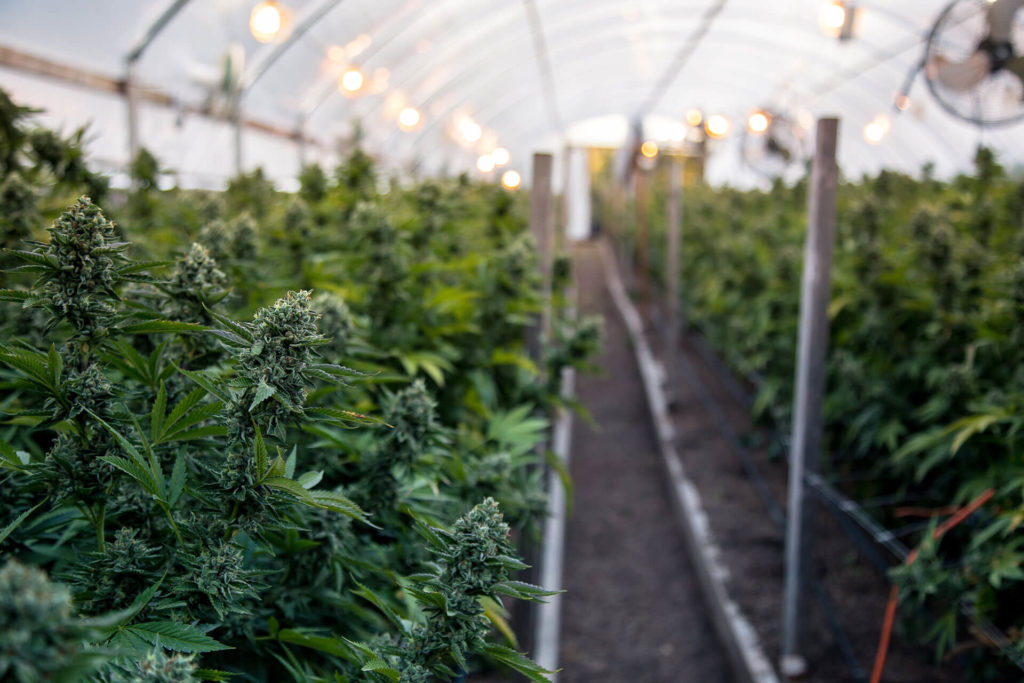Is Marijuana Addictive?

Is marijuana addictive? Regular marijuana users experience withdrawal symptoms when they stop using the drug. They also find it difficult to stop using the drug even when they want to discontinue its use. These two facts alone make marijuana use at least physically addictive.
Understanding Marijuana
The scientific name for marijuana is cannabis. The primary mind-altering chemical that pot users love and that causes a cannabis addiction is delta-9-tetrahydrocannabinol (THC). THC exists in the resin from the buds and the leaves of the female cannabis plant. When a person consumes cannabis, the THC reacts in the brain. As the THC hits the brain, it acts exactly like the neurotransmitter anandamide. Both anandamide and THC are classified as cannabinoids. These two types of neurotransmitters affect brain activity such as:
- Short term memory
- Learning ability
- Coordination
The brain’s natural endocannabinoids regulate essential bodily functions such as:
- Digestion
- The functioning of a person’s immune system
- Inflammation throughout the body
- Mood
- Sleep and sleep quality
- The ability to reproduce
- The ability to remember
- Pain
- Pleasure
An individual who uses marijuana substitutes the brain’s natural endocannabinoids with those found in pot. Eventually, the brain stops making as many endocannabinoids as it would naturally. So when a person discontinues using pot, the brain’s neurotransmitters don’t make enough natural cannabinoids to work right or to regulate all of the above brain functions.
Cannabis Use Disorder
Approximately 30 percent of individuals who use marijuana have a cannabis use disorder. This disorder includes feeling dependent on the drug. However, only nine percent of pot users develop a marijuana addiction. A weed user shows signs of dependency on the drug when marijuana isn’t used for a while. Once the user begins to have symptoms such as irritability, mood changes, cravings and a lack of appetite when they stop using marijuana, the cannabis use disorder becomes an addiction.
How Can A Person Tell If Someone Is Using Marijuana?
Physical signs that an individual is using weed include:
- Dizziness
- Laughing for no reason
- Red, bloodshot eyes
- Being forgetful
- An unusual increase in appetite and sudden weight gain
Cannabis Withdrawal
It remains critical to understand the difference between physical addiction and psychological addiction. Physical marijuana addiction requires two hallmarks, namely, developing a tolerance to the drug and withdrawal symptoms. Developing a tolerance to marijuana means that a person who regularly uses the drug needs to use increasing amounts of pot to achieve the same level of intoxication. Also, if an individual suddenly stops using marijuana after using it regularly, they may experience withdrawal symptoms such as:
- Anger or feeling irritable
- A decrease in a person’s appetite
- Generalized malaise or restlessness
- Sleep disturbances or nightmares
- Feeling depressed
- Abdominal discomfort
- Chills or fever
- Headaches
- Shakiness
These withdrawal symptoms usually occur within a week after discontinuing THC use. The symptoms of cannabis withdrawal usually peak within about ten days after quitting cannabis, and then begin to lessen in the next 10-20 days. The severity and length of withdrawal symptoms vary from person to person depending on the amount of pot they used. Unfortunately, some people experience mild depression, changes in mood, fatigue, and pot cravings for some time after they stop using weed.
Staying Off Marijuana
Dealing with Triggers
The cravings and other signals of withdrawal from being addicted to weed are easily and quickly cured by using marijuana again. This fact makes it easy for someone who craves the drug or feels sick from not using it to be tempted to use again. Also, old habits remain challenging to break. If the weed sober person gets in tense situations, or specific events occur, it remains easy for the marijuana user to go right back to their previous methods of dealing with stress by using again. For that reason, it’s good to have a plan for avoiding triggers and getting help.
Some ways to avoid triggers include:
- Not hanging out with your pot smoking friends
- Not going to parties or other social gatherings where weed is routinely used
- Learning to deal with difficult emotions
- Finding stuff to do when stress, feelings or boredom occur that could trigger marijuana use
- Having a sober network or support system like a 12-step group
Advantages of Attending Rehab for Marijuana Addiction
The counseling you receive while in rehab can help individuals get off marijuana with medical and physical support. While there are no medically recommended medications available to lessen marijuana cravings or withdrawal symptoms, other types of drugs can deal with the symptoms of withdrawal. Also, counseling helps people identify triggers that may cause them to want to use again. Plus, a person in rehab can learn self-care techniques to replace using marijuana with other activities, such as:
- Exercise
- Yoga and mindfulness
- Meditation
- Learning hobbies and other activities besides smoking pot
- Getting the right medication to treat depression or other drug use related issues
- Spirituality practices
- Support from counselors and support groups
- 24-hour support
Instead of going through the uncomfortable symptoms of marijuana withdrawal alone, a person can seek treatment for addiction at a qualified rehab facility that can help them get and stay off cannabis for the long-run.




